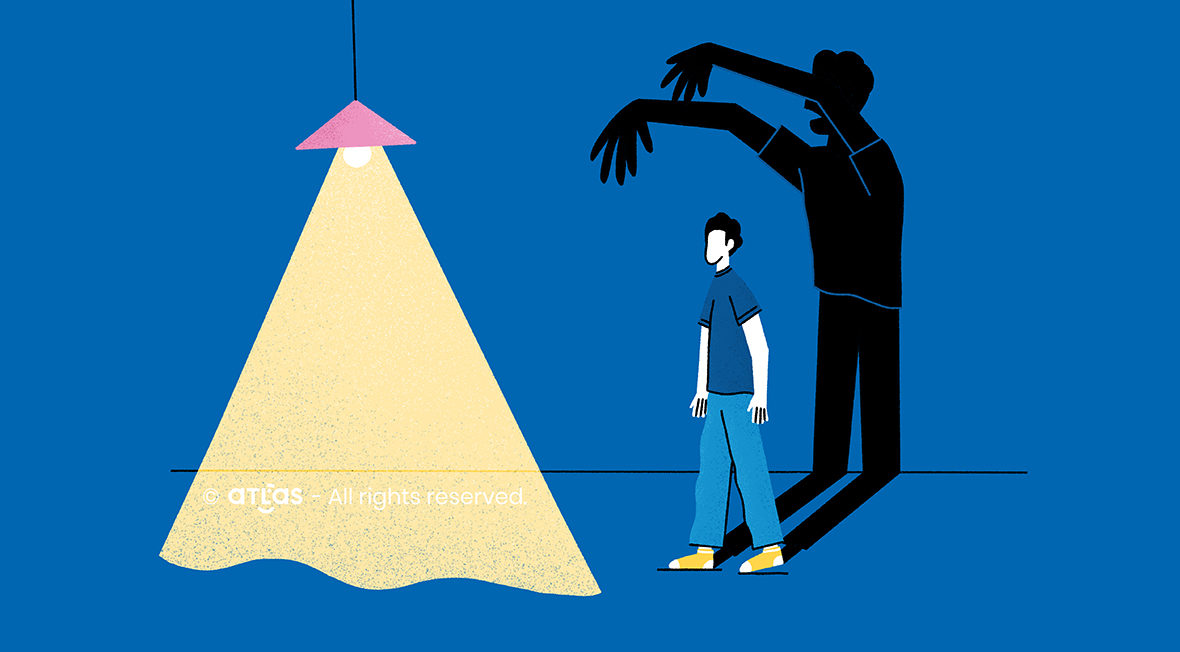Fear paralyzes. What about phobias? In the immensity of feelings that have gripped us, we see some patterns of fears and anxieties that differ from the generic ones.
Respond to the names of phobias, are these elves of psychology, tracked and analyzed by specialists from all over the world. Have many causes and manifestations of the most diverse. They sneak almost to blow up everything you knew about fears.
Do you find familiar the mirrors that distort the image? They make us see things disproportionately and exaggeratedly. It is quite the same as phobias. That doesn’t mean they’re not as real as it sounds (as affection). Besides, it brings enormous suffering to those who face them.
If what you’re feeling doesn’t seem like just a simple fear, if everyone around you tells you that your fear seems to land from Mars, take a look at Phobos. You’re getting a little scared, aren’t you? Until Phobos – the darkest satellite in the solar system (and with a phobia name:)) hits Mars, our specialists are thinking about how not to let any phobia take you down or make you feel from another planet.
Phobias with an emphasis on F
Phobias fall into two big categories:
- Fear of objects
- Fear of situations
They have very different intensity levels; they can increase during this period and are about as virulent as the pandemic itself. It affects those who had already turned to therapy, but even more so, those who were not diagnosed yet.
Gabriela Martínez Castro, from the Center for Specialized Studies in Anxiety Disorders (CEETA, Argentina) says that:
Patients treated for phobias and anxiety disorders are in a relapse due to current restrictions. For some of them, the problem is exactly isolation, even for those with agoraphobia who need to get out. There is a fear of us, of specialists also for those who suffer from the fear of contact with others because of social anxiety. Exacerbated concerns of patients have led to an even greater return of symptomatology.
Phobias at increased risk of aggravation during the Pandemic period:
1. Social phobia
- Yes, we know! We don’t want to get pushy
We would tend to think that those who, until a few weeks ago, had social phobia would be the privileged of the pandemic period in this regard. But if we look at the social isolation that comes with this phobia, long-term isolation will further accentuate the affection, making further socialization even harder.
2. Monophobia
- With anyone, but never alone?
We are dealing with a catch-all term for more discreet fears. Some people are afraid of being without a particular person. Others fear living alone, being alone at home, or being alone in public.
There are a few variations about the fear of being alone, and each may have different psychological causes underlying it. The fear of being alone in public can be linked to conditions such as social phobia or agoraphobia.
One of the legitimate reasons for feelings of fear would be to live in a neighborhood with a high crime rate. If you are not capable of managing your fear, talking on the phone or online is often enough to relieve immediate distress. We have the right specialists for you.
3. Claustrophobia
- Did you move the desk down the stairs/ stairwell or into the garden?
- Do you prefer to send others to the cellar or pantry for some goodies?
- You climb eight floors instead of taking the elevator?
Do not confuse anxiety or the desire for a bigger space with claustrophobia. The latter is the irrational fear of closed places or restrictions of movement and requires psychological and psychiatric treatment. At the same time, the first is a behavioral response to the situation of isolation and lack of recreational outings.
4. Misophobia – fear of germs
Think about what the well-defined route to the first store of a person who has mysophobia looks like! The whole way will be a long one of constant fears of contamination or dirt.
Mysophobia turns crescendo into an exaggerated and categorically unhealthy fear of contamination. Specialists have concluded that mysophobia is linked to obsessive-compulsive disorder.
Specialists speak in the case of mysophobia during this period about an increase in fear of:
- cross-contamination of food;
- exposure to other people’s bodily fluids;
- maintaining good hygiene;
5. Hypochondria
- Fear of disease – from a simple cold to COVID?
We can discuss this hypochondria, either in terms of mental illness, bordering on anxiety or panic attacks, or one in its own right, difficult to be placed in a particular area. Identification of the cause of the phobia (genetic – native, acquired, post-traumatic) is mandatory for overcoming it.
The Englishman Henry Maudsley, considered today a pioneer in the field of psychiatry, said in the late 19th century:
Pain that doesn’t find relief in tears makes the organs cry.
Behind this expression comes diagnosed in the first form, one of the most common diseases of the contemporary world: hypochondria. The difference from today is that, in Maudsley’s time, such an appearance through the index of conditions of all kinds was considered a mere curiosity.
Today, things are different: we have verified licensed specialists, ready to help you just a click away. We are with you when the phobia is lurking around you because psychotherapy is necessary, as well as consulting a Psychologist.
Get to our specialists through your ATLAS account or by calling ATLAS Help Line – 031 630 2020, a free 24/7 phone line.
We’re here for you!
ATLAS







